Behind locked gates, this extraordinary barn could represent the future of organ transplants. The pigs here don’t roll around in mud, but live in air-conditioned environments. Visitors must change into protective gear and step into a tub of disinfectant to clean their shoes.
Biosecurity is even tighter just a few miles away in Christiansburg, Virginia, where a new herd of pigs is being raised to provide organs for formal animal-to-human transplant studies next year.
The massive facility looks less like a farm and more like a pharmaceutical factory. Part of the facility is closed to everyone except certain employees, who shower at set times, don company-provided clothes and shoes, and enter an area where piglets are raised.
Behind that layer of security are some of the cleanest pigs in the world . They breathe air and drink water that is much cleaner than what humans need. Even their food is sterilized. All to prevent them from picking up bacteria that could harm transplant recipients.
“We designed this facility to protect the pigs from environmental and human contamination. Every person who enters this building is a potential disease risk,” said Matthew VonEsch of biotech company United Therapeutics, Revivicor’s parent company.
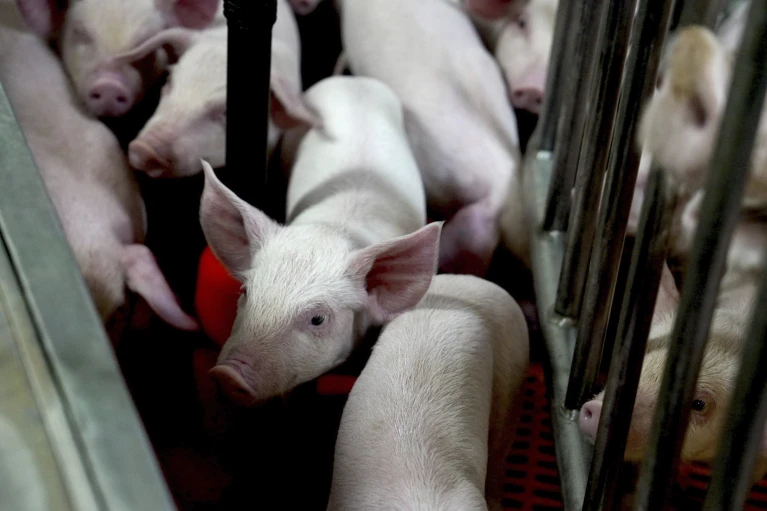
Genetically modified piglets at the Revivicor research farm. Photo: AP
Creating pigs to help solve human organ shortage
Thousands of Americans die each year waiting for an organ transplant, and many experts admit there will never be enough donors to meet the demand.
Animals offer tantalizing hope for a readily available supply of organs. After decades of unsuccessful attempts, companies including Revivicor, eGenesis and Makana Therapeutics are working to breed pigs to make them more human-like.
To date, there have been four pig-to-human organ transplants in the United States: two heart transplants and two kidney transplants, with two hearts and one kidney provided by Revivicor. Although the four patients died within a few months, they left valuable lessons for researchers.
The $75 million, pathogen-free facility was built to meet the U.S. Food and Drug Administration's (FDA) safety standards for xenotransplantation.
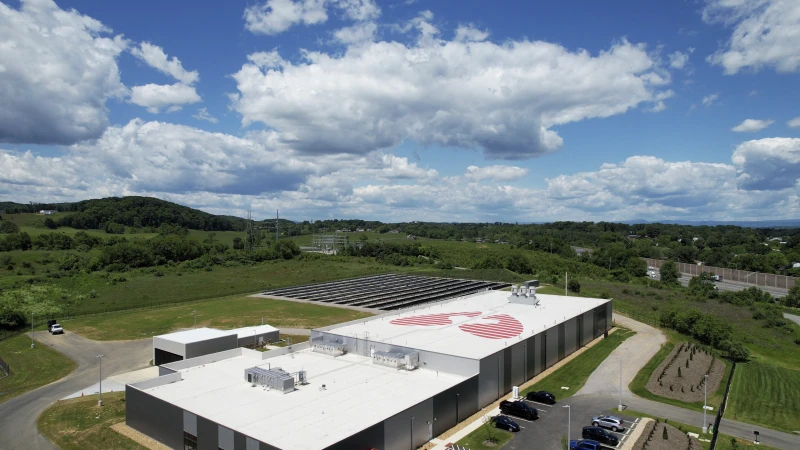
Germ-free facility in Christiansburg. Photo: AP
To avoid rejection of the pig organs when transplanted into humans and to reduce the risk of infection, the lab will start by editing genes in pig skin cells. A gene that produces a sugar called alpha-gal, which triggers immediate destruction by the human immune system, will be deleted. Three other genes that activate human immunity will also be deleted. The company is currently working on 10 gene edits, deleting pig genes and adding human genes that together reduce the risk of rejection.
They cloned pigs using those modifications, similar to how Dolly the sheep was created.
Twice a week, slaughterhouses ship in hundreds of eggs extracted from sows’ ovaries. Working with the eggs, scientists peer through microscopes while siphoning out the mother’s DNA. Then they inject genetic modifications into the right place without breaking the egg. Mild electric shocks fuse the new DNA and trigger the embryo’s development.
Hours later, the embryos were brought to the research farm in a hand-held incubator and implanted into waiting sows.
Luxury accommodation for important pigs
At the research farm, Tom Petty's "Free Fallin'" plays in a piglet pen, where music helps the pigs get used to human voices. In air-conditioned pens, the pigs purr in greeting until they realize their visitors aren't bringing food. Three-week-old piglets run around their mother. Nearby, their older siblings nap or play with balls and other toys.
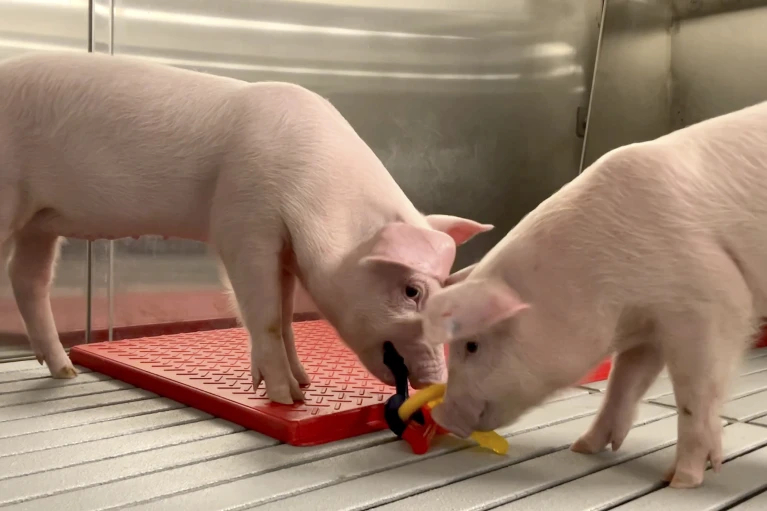
Genetically modified pigs at a pathogen-free facility in Christiansburg. Photo: United Therapeutics
“It’s a luxurious life for a pig,” said David Ayares of Revivicor. “But they are very valuable animals. They are very intelligent. I’ve seen piglets playing with balls together like soccer.”
About 300 pigs of various ages live on this farm, set among rolling hills, the exact location of which is not disclosed for security reasons. Ear tags identify their genes.
“You have to give these pigs a good life,” said Suyapa Ball, director of swine technology and farm operations at Revivicor. “They are sacrificing their lives for us.”
A group of pigs used for the most important experiments, the first human trials and FDA-required studies, are kept in cleaner barns and with stricter security.
The development of the facility in nearby Christiansburg represents a new phase in xenotransplantation, with the massive scale of the pathogen-free facility. Inside the 80,000-square-foot building, the company plans to produce about 125 pig organs a year, enough to supply clinical trials.
They are born in a kind of pig breeding center connected to the facility, weaned a day or two later, and moved to ultra-clean pens to be hand-reared. In addition to being bathed on site, their caretakers must don new protective gear and masks before entering each row of pigs—a precaution against bacteria.
The pig farm is surrounded by security and mechanical systems that protect the animals on all sides. Outside air enters through multiple filtration systems. Huge tanks hold backup supplies of drinking water. Pipes and vents are arranged to allow maintenance and repairs without contact with the animals.
It will take years of clinical trials to prove whether xenotransplantation actually works. But if successful, United Therapeutics plans to build even larger facilities capable of producing up to 2,000 organs a year at several locations across the United States.
Hoai Phuong (according to AP)
Source: https://www.congluan.vn/nhung-chu-lon-sach-nhat-the-gioi-duoc-nuoi-de-lay-than-va-tim-cho-con-nguoi-post304425.html




![[Photo] President Luong Cuong receives delegation of the Youth Committee of the Liberal Democratic Party of Japan](https://vstatic.vietnam.vn/vietnam/resource/IMAGE/2025/8/22/2632d7f5cf4f4a8e90ce5f5e1989194a)
![[Photo] Prime Minister Pham Minh Chinh chairs the conference to review the 2024-2025 school year and deploy tasks for the 2025-2026 school year.](https://vstatic.vietnam.vn/vietnam/resource/IMAGE/2025/8/22/2ca5ed79ce6a46a1ac7706a42cefafae)





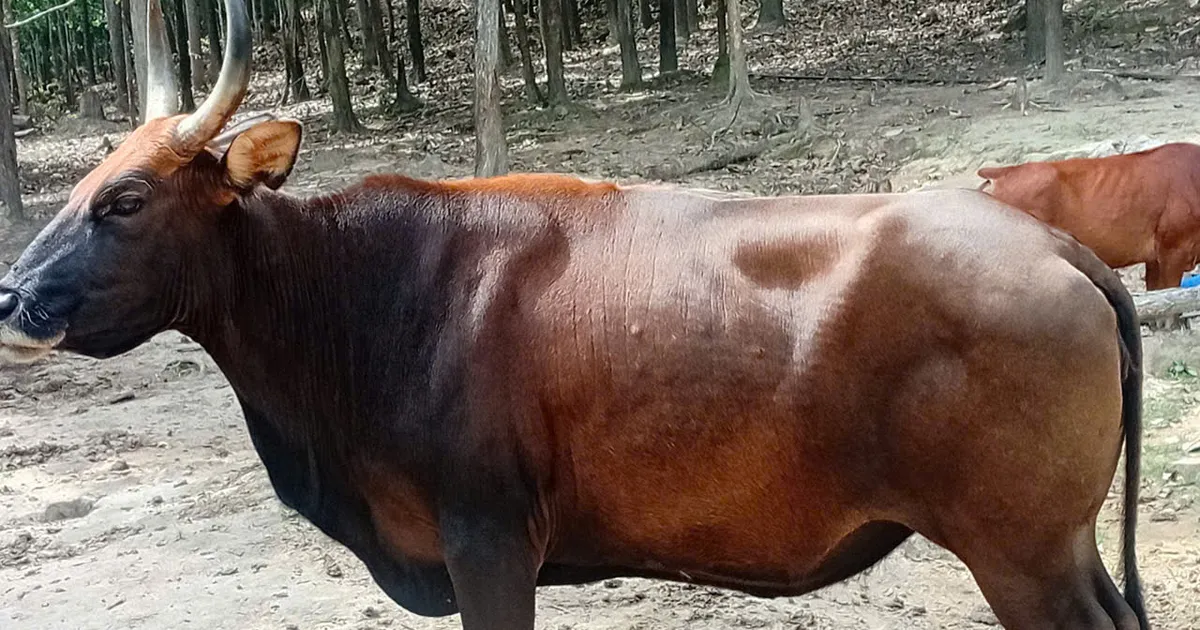

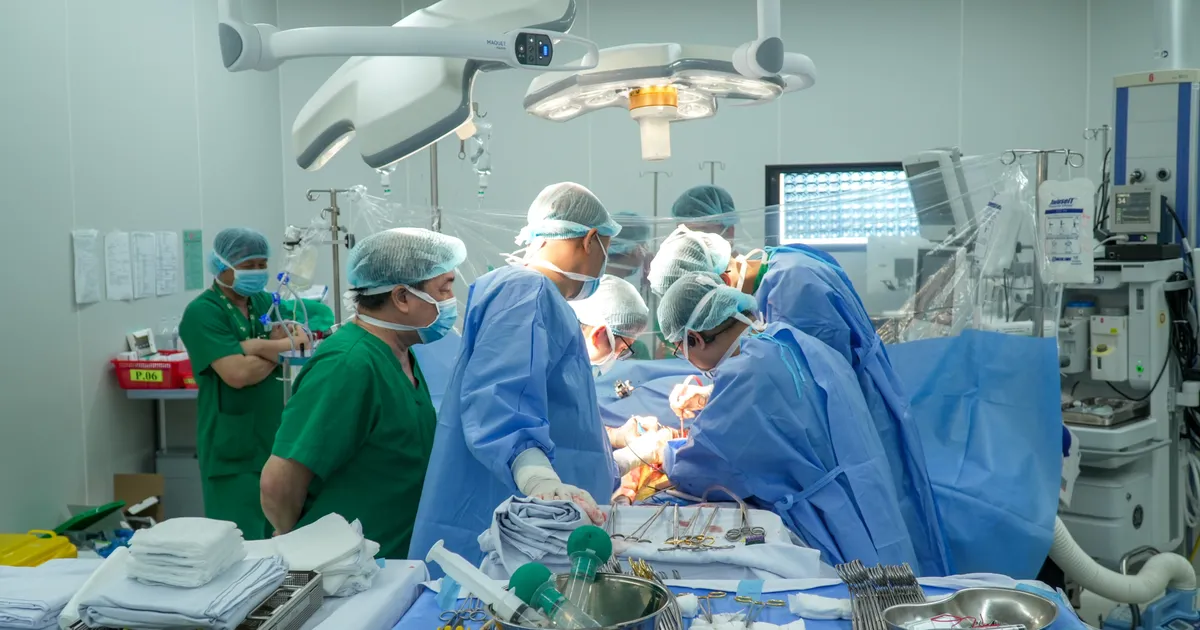
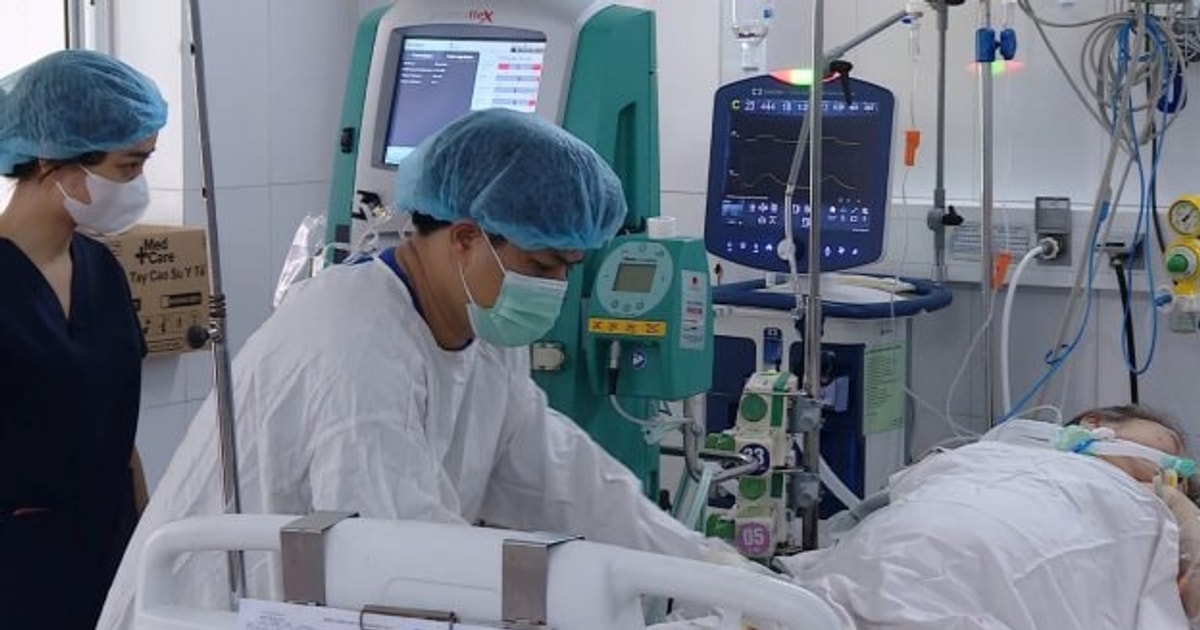


































































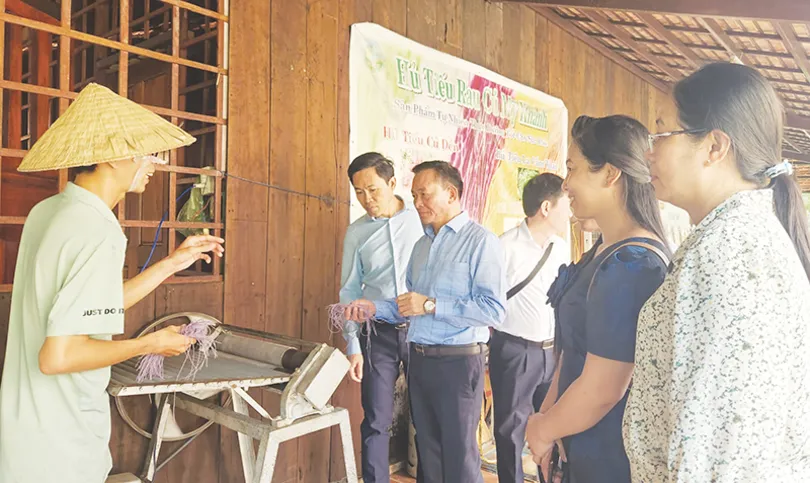









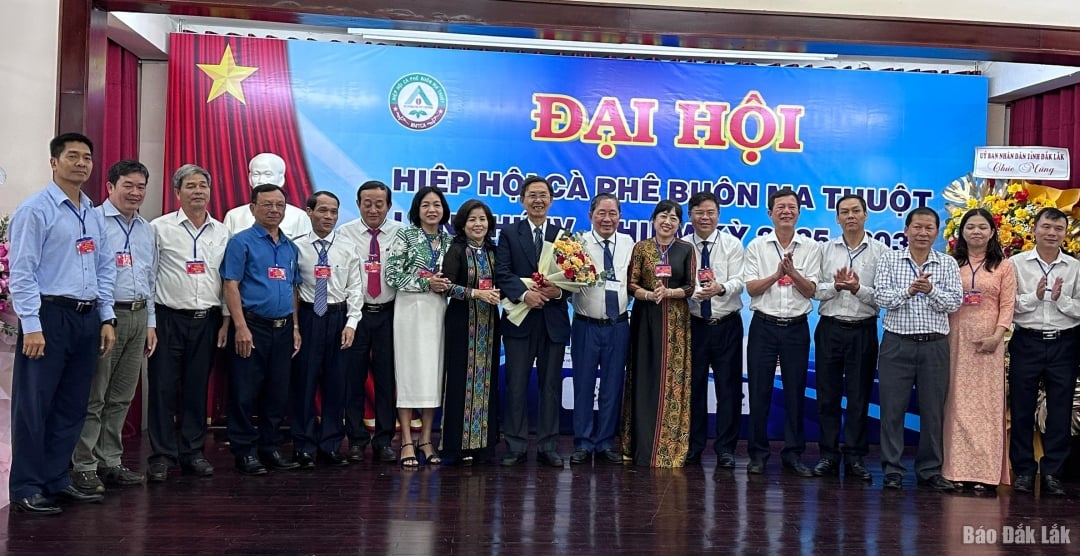













Comment (0)